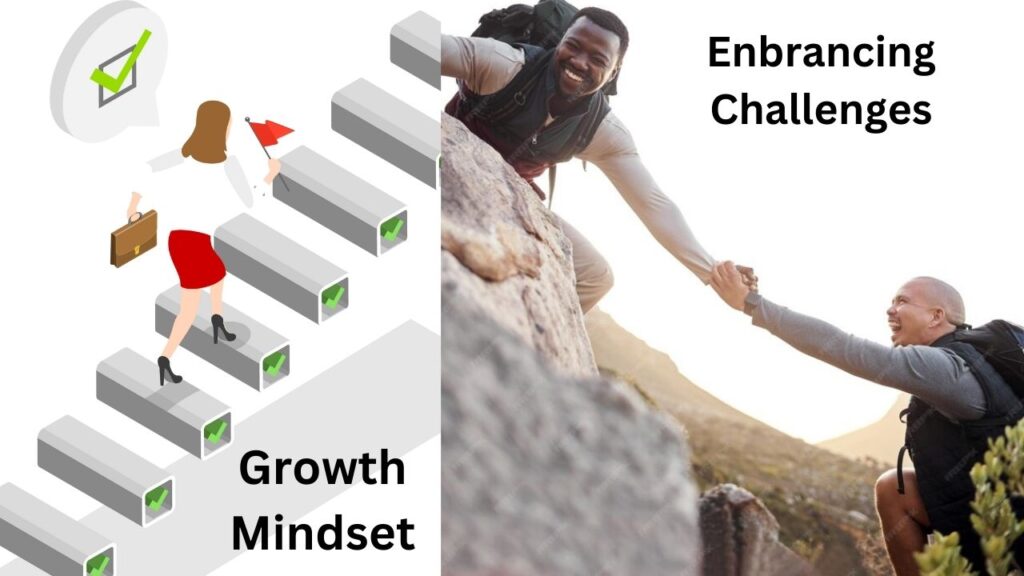Emotional intelligence (EI) is a critical skill that shapes the quality of our personal and professional relationships. At its core, EI entails the skill set required to not only identify and comprehend emotions, both within ourselves and in others, but also to skillfully manage and harness these emotions for constructive purposes. The cultivation of EI goes beyond merely enriching our connections with those in our social sphere; it also serves as a cornerstone for our overall well-being and achievements across various facets of life. This article examines the fundamental concept of emotional intelligence, unravels its significance, and offers practical insights to nurture and enhance your emotional intelligence, thereby nurturing more rewarding and fulfilling relationships.
Jump to Section:
ToggleUnderstanding Emotional Intelligence
To start with, emotional intelligence encompasses four core components:
1. Self-Awareness
Self-awareness involves recognizing and understanding your emotions, including their causes and effects. It means being in tune with your feelings and understanding how they influence your thoughts and behaviours.
2. Self-Management
Self-management is the ability to regulate and control your emotions. It involves handling stress, maintaining a positive outlook, and effectively managing your impulses and reactions.
3. Social Awareness
Social awareness is about perceiving and understanding the emotions of others. It involves empathy, recognizing nonverbal cues, and understanding the dynamics of social situations.
4. Relationship Management
Relationship management is the application of emotional intelligence in interpersonal interactions. It involves effective communication, conflict resolution, and building and maintaining positive relationships.
Why Emotional Intelligence Matters in Relationships
Developing emotional intelligence is paramount for several reasons:
1. Enhanced Communication
Emotionally intelligent individuals are better communicators. They can express their thoughts and feelings clearly and empathetically, leading to more productive and harmonious conversations.
2. Improved Conflict Resolution
Emotional intelligence helps in managing conflicts constructively. EI allows you to stay calm, empathize with others, and find mutually beneficial solutions to disagreements.
3. Building Trust and Rapport
People with high emotional intelligence tend to build trust and rapport more easily. They can connect with others on a deeper level and create more robust, more meaningful relationships.
4. Better Leadership
Emotionally intelligent leaders are more effective in inspiring and motivating their teams. They create a positive work environment and foster collaboration.
5. Stress Reduction
EI contributes to better stress management. Emotionally intelligent individuals are more resilient and can handle stressors more effectively, reducing the negative impact on their relationships.
Strategies for Developing Emotional Intelligence

Having clarified the components and significance of emotional intelligence in relationships, let’s examine the practical strategies for developing and improving EI. But you might need to check out the 15 Signs and Behavoural Indicators of Law Emotional Intelligence. Below are the proven strategies:
1. Practice Self-Awareness
Self-awareness is the cornerstone of emotional intelligence. It entails recognizing and understanding your emotions, strengths, and weaknesses. To deepen self-awareness, engage in regular self-reflection. This can be achieved through journaling or contemplative practices. When you pay attention to your emotional responses in various situations, you become more attuned to your emotional triggers and patterns. This heightened self-awareness allows you to identify the emotions that influence your thoughts and actions, helping you make more informed decisions.
Furthermore, seeking feedback from others can provide valuable insights into your emotional tendencies. Ask friends, family, or colleagues for honest assessments of your emotional behaviour. This external perspective can complement your self-awareness and reveal aspects you might not have noticed on your own. In addition, emotional intelligence assessments and tools can help you gain a more structured understanding of your emotional strengths and areas for improvement. The key is to continually practice self-awareness to develop a deep understanding of your emotional landscape and its impact on your life.
2. Enhance Self-Management
Self-management is the ability to control and regulate your emotions effectively. This skill is critical for handling stressful situations, avoiding impulsive reactions, and maintaining a sense of composure. To enhance self-management, it is important to practice self-control techniques. Mindfulness meditation, for example, can help you become more aware of your emotional state in the present moment and, over time, develop the capacity to choose your responses consciously. Techniques such as deep breathing and progressive muscle relaxation can also help in managing stress and emotional turmoil.
Another crucial aspect of self-management is understanding your emotional triggers. These are specific situations, people, or circumstances that provoke strong emotional reactions. By identifying your triggers, you can develop strategies to manage them effectively. These strategies may include positive self-talk, taking short breaks to regain composure, or seeking social support when needed. Ultimately, self-management is about having the tools and techniques to handle emotions constructively and make choices that align with your long-term goals.
3. Develop Social Awareness
Social awareness involves understanding the emotions and needs of others. Deepening social awareness begins with active listening and observation. When engaging in conversations, pay close attention to verbal and non-verbal cues, such as body language and tone of voice. This enables you to better grasp the emotional state of the people you’re communicating with.
Empathy is a central component of social awareness. A more detailed and elaborate discussion on it has been made in a subsequent subheading. This mental exercise can help you appreciate other people’s feelings and concerns.
Over and above, cultural awareness is vital in an increasingly diverse world. Being attuned to cultural differences in emotional expression and norms can prevent misunderstandings and foster more inclusive interactions. Read literature, engage in cross-cultural experiences, and educate yourself about different cultural practices and customs to enhance your social awareness. Overall, social awareness is about tuning into the emotional landscape of those around you, which is crucial for building meaningful relationships and navigating social situations effectively.
4. Improve Relationship Management
Relationship management is an integral part of emotional intelligence and involves effectively navigating social interactions, building positive relationships, and resolving conflicts. This skill is crucial for personal and professional success. It starts with effective communication, which includes active listening, clear expression of thoughts and feelings, and the ability to adapt your communication style to different situations and individuals.
To improve relationship management, it’s essential to cultivate trust and rapport. Trust is the foundation of any healthy relationship, and it’s built through consistency, honesty, and reliability. Developing rapport involves creating a sense of connection and shared understanding with others. This can be achieved by finding common ground, showing empathy, and demonstrating that you value and respect the other person’s perspective.
Conflict resolution is another key component of relationship management. Conflicts are a natural part of any relationship, but handling them constructively is essential. Effective conflict resolution involves active listening to understand the other person’s point of view, finding mutually agreeable solutions, and compromising when necessary. By improving your relationship management skills, you can foster harmonious relationships and collaborations in both your personal and professional life.
5. Cultivate Empathy
Empathy is the ability to understand and share the feelings of others. It is a core element of emotional intelligence and is vital for building connections and demonstrating care and support. Cultivating empathy begins with active listening. When you engage in conversations, focus on the speaker, ask open-ended questions, and express genuine interest in their thoughts and feelings. This shows that you are truly present and seeking to understand their perspective.
Empathy also involves perspective-taking. Try to put yourself in the other person’s shoes and imagine how they might be feeling in a given situation. This mental exercise helps you develop a deeper appreciation for their emotions and concerns. Additionally, avoid making judgments or assumptions about their feelings, as this can hinder empathy.
Furthermore, empathy is not limited to understanding others’ emotions but extends to demonstrating care and support. Show empathy through words and actions. Offer a listening ear, provide comfort when needed, and be responsive to others’ emotional needs. Empathy is a powerful tool for building trust and forging meaningful connections with others, as it shows that you value and respect their emotions.
6. Develop Interpersonal Skills
Interpersonal skills are the set of behaviours and abilities that enable you to interact effectively with others. These skills are crucial for building and maintaining relationships, both personally and professionally. Developing interpersonal skills includes mastering effective communication, which involves both verbal and non-verbal communication. Clear and respectful communication fosters understanding and collaboration.
Another key aspect of interpersonal skills is the ability to establish rapport and connect with others. This entails being approachable, displaying warmth and friendliness, and showing genuine interest in others. When people feel comfortable around you, they are more likely to open up and engage in positive interactions.
Just as it applies to Relationship Management discussed earlier, conflict resolution is also an important component of interpersonal skills. Conflicts can arise in any relationship, and the ability to address and resolve them constructively is vital.
Overall, developing interpersonal skills helps you engage positively with others, build strong connections, and foster a collaborative and supportive environment in both your personal and professional life. These skills are integral to effective relationship management and are key to enhancing your emotional intelligence.
7. Cultivate Resilience
Resilience is the ability to bounce back from setbacks, adapt to change, and maintain a positive outlook in the face of adversity. Cultivating resilience is crucial for emotional intelligence because it enables you to manage stress and challenging situations effectively. To build resilience, focus on developing problem-solving skills. When you encounter difficulties, approach them with a problem-solving mindset, seeking practical solutions and learning from your experiences.
More so, a robust support system can greatly enhance your resilience. Surround yourself with supportive friends, family, or mentors who can offer encouragement and guidance during tough times. Cultivating optimism and a positive outlook is also essential. This involves reframing negative thoughts, maintaining a growth mindset, and looking for silver linings in difficult situations. Developing these skills can help you bounce back from setbacks and maintain emotional equilibrium.
8. Practice Emotional Regulation
Emotional regulation is the ability to manage and control your emotions effectively. It is particularly important for making rational decisions and maintaining harmonious relationships. To practice emotional regulation, it is beneficial to develop a toolbox of techniques for managing strong emotions. Deep breathing, progressive muscle relaxation, and mindfulness meditation can help you stay calm under pressure and avoid impulsive reactions.
9. Seek Feedback and Self-Reflect
Aside from the initial effort towards seeking feedback for self-awareness first mentioned, to enhance your emotional intelligence, you should actively seek feedback from trusted individuals in your life, such as friends, family, or colleagues. Constructive feedback can provide valuable insights into your emotional behaviour, areas for improvement, and blind spots you may not be aware of. It is important to approach this feedback with an open mind, a willingness to learn, and a commitment to making positive changes.
Regular self-reflection is equally crucial. Set aside time to contemplate your emotional responses, actions, and their outcomes. Reflect on your interactions with others and consider how your emotions may have influenced these interactions. Identify patterns in your emotional reactions and think about how you can adjust your behaviour in similar situations in the future. Self-reflection is a continuous process of self-improvement, allowing you to refine your emotional intelligence gradually.
Practical Application of Emotional Intelligence in Different Contexts
Emotional intelligence is valuable in various aspects of life. Here’s how to apply EI in specific contexts:
1. Professional Relationships
- Effective Leadership: Emotionally intelligent leaders inspire trust, motivate teams, and handle conflicts effectively.
- Conflict Resolution: EI helps in resolving workplace conflicts, fostering teamwork, and improving employee morale.
2. Personal Relationships
- Communication: In personal relationships, EI supports open and empathetic communication, strengthening connections.
- Conflict Resolution: EI allows you to manage disagreements constructively, preventing conflicts from escalating.
3. Parenting
- Emotion Coaching: Emotionally intelligent parents can guide their children through emotional experiences, teaching them how to manage their feelings.
- Positive Discipline: EI helps parents react to their children’s behaviour with understanding and empathy, creating a more nurturing environment.
4. Health and Well-being
- Stress Management: EI aids in managing stress by recognizing and regulating emotions, preventing emotional eating or other unhealthy coping mechanisms.
- Self-Care: Understanding your emotional needs allows you to prioritize self-care effectively.
5. Career Advancement
- Networking: EI is beneficial in networking and building professional relationships, which can lead to career opportunities.
- Leadership Development: Developing emotional intelligence can enhance leadership skills and career growth prospects.






